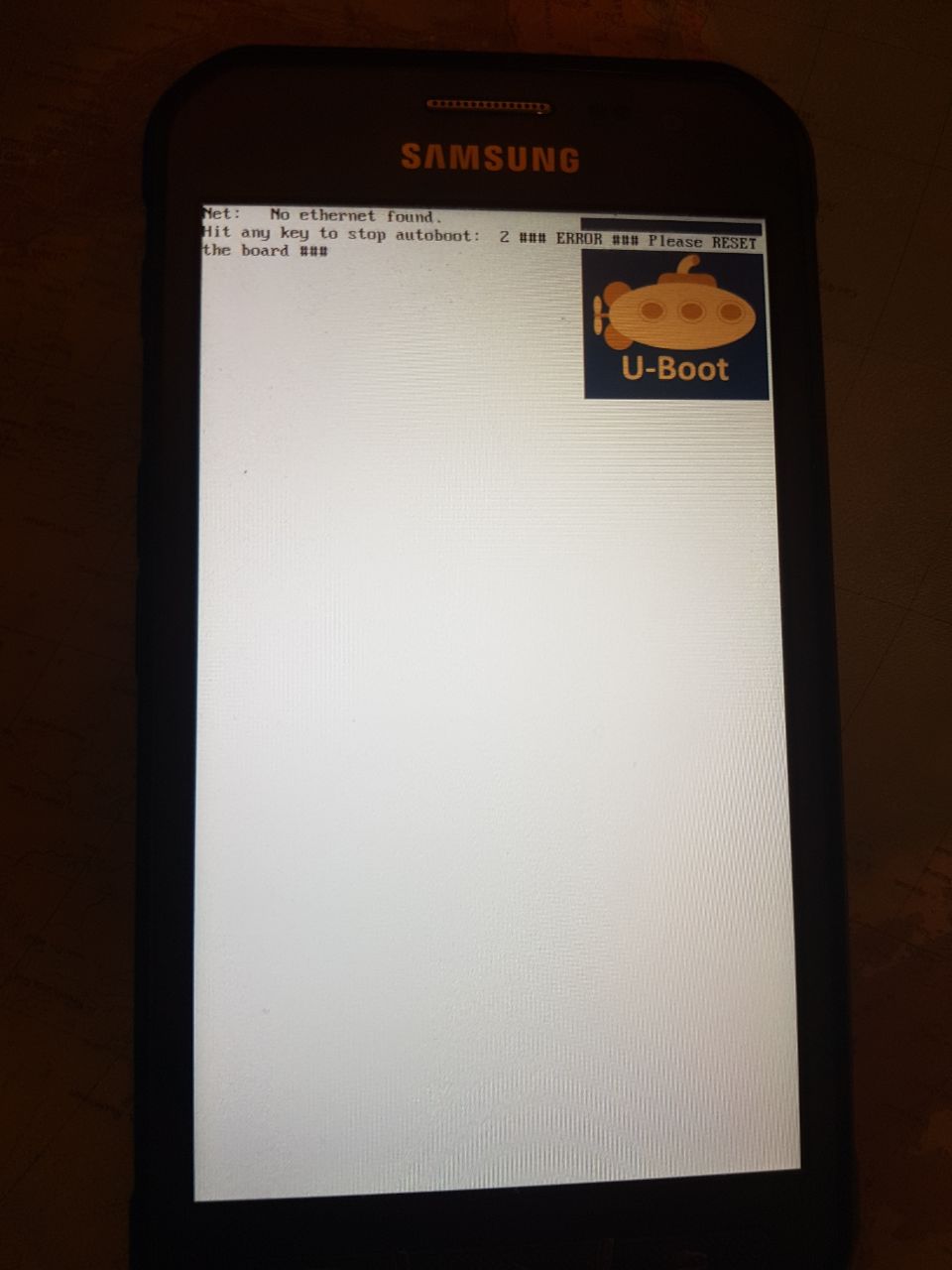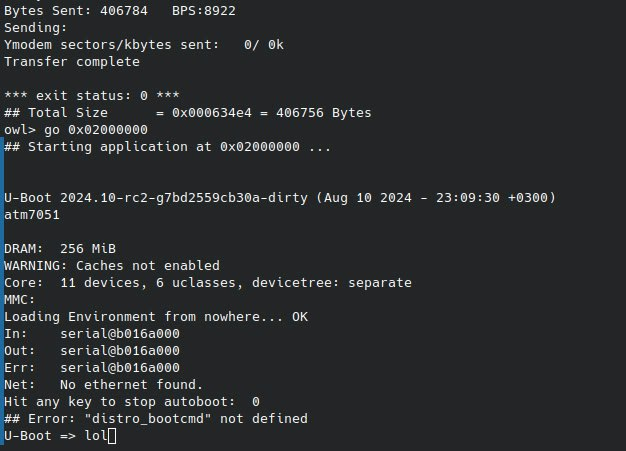My work
Linux #
The S22+ is the most modern Samsung phone in mainline. With Exynos 2200, Samsung has done a lot of changes to its SoC design, largely due to the need of a high performance on a small node (4nm). I have upstreamed basic support with USB.
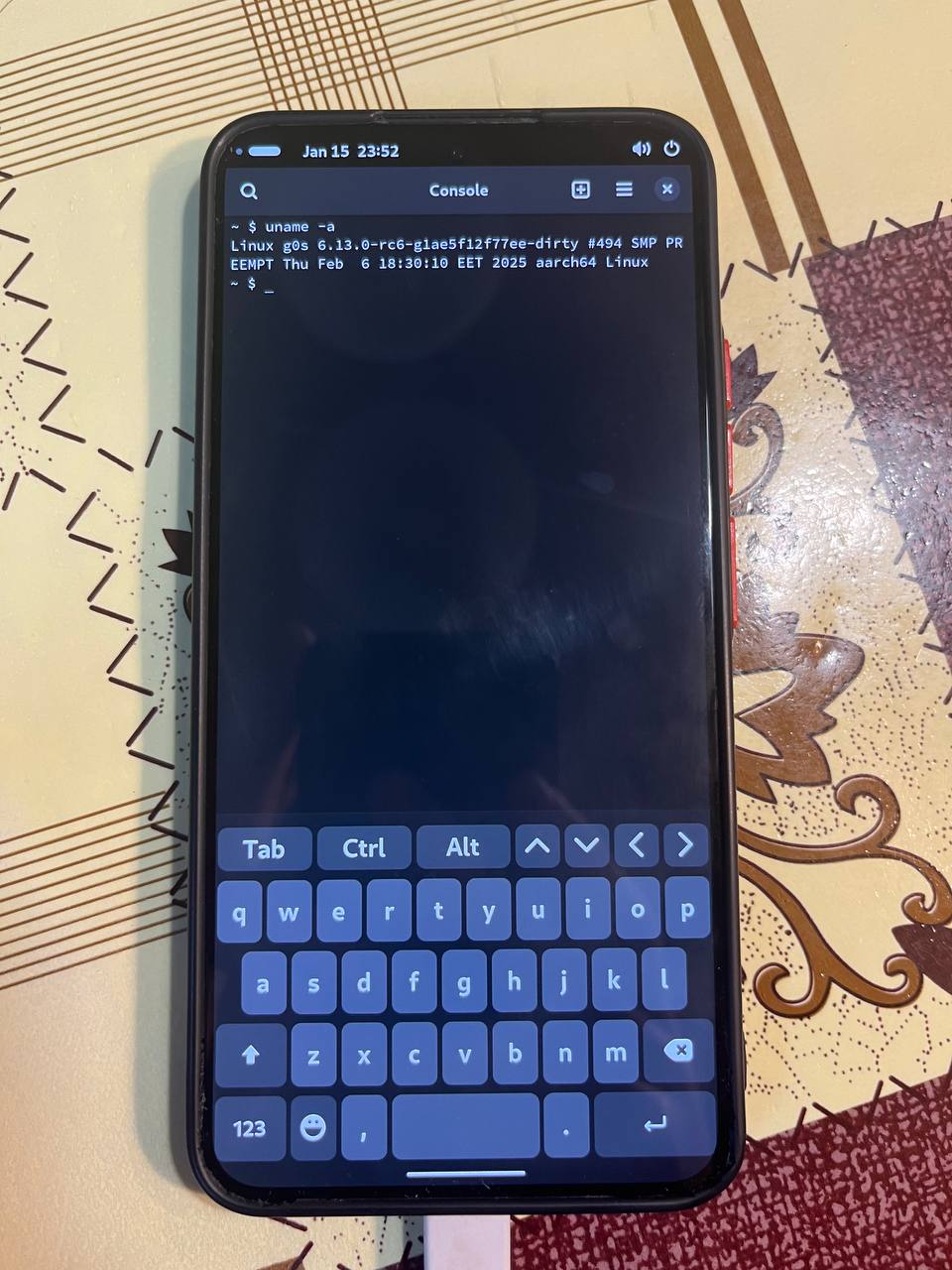
The Samsung Galaxy S8 is definitely not an easy platform to work on. Its high-end exynos SoCs (even for 2017) has a large amount of buses like I2Cs, UARTs, HSI2Cs. Support for the device and the SoC I have gotten upstream since 6.13. Amongst the things that will be brought up in the future are USB, UFS, DECON and Mali G71 via Panfrost.
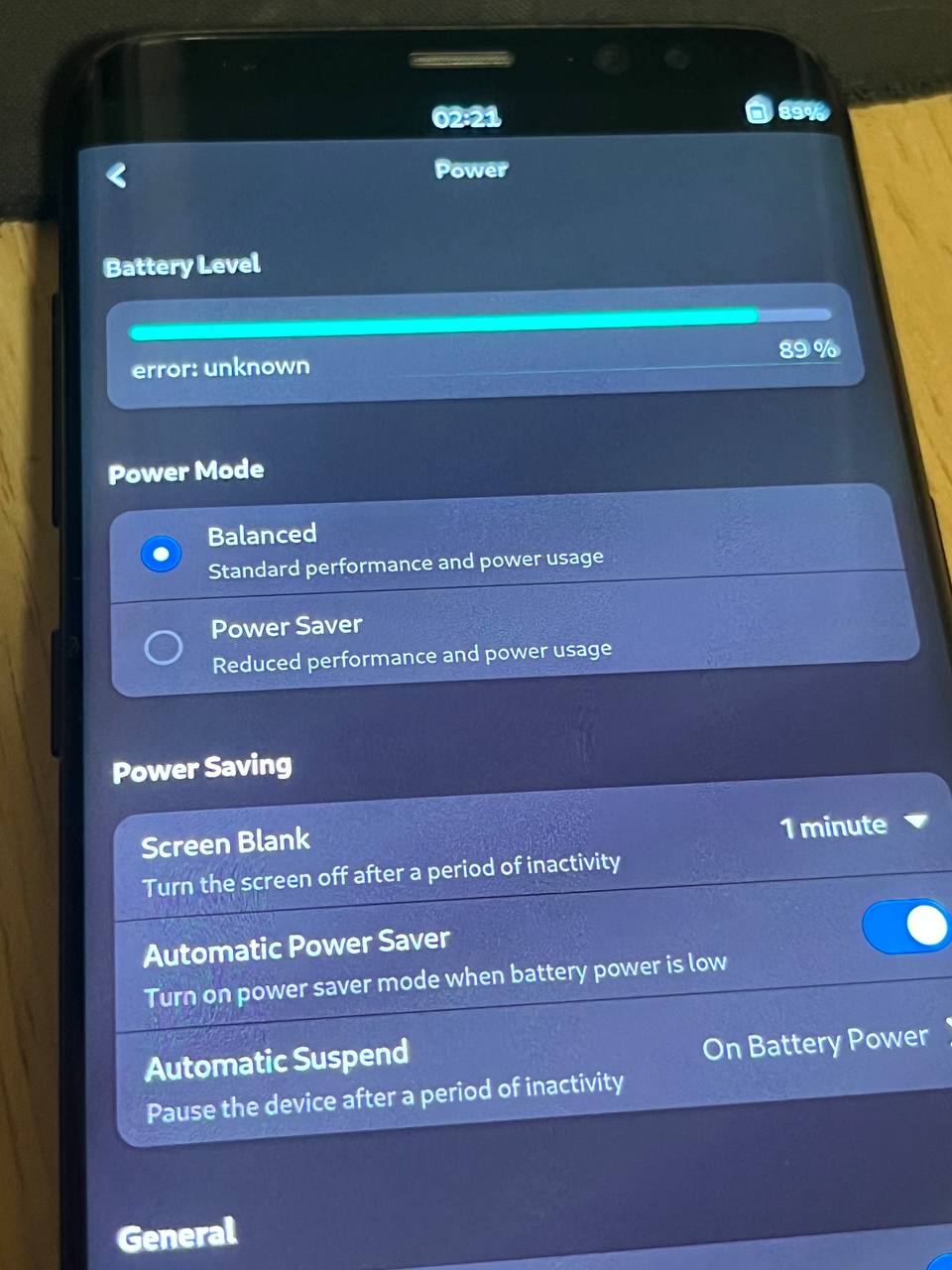
The Powkiddy X51 handheld console is relatively tricky to develop mainline support for, because there are no official kernel sources, nor any kind of documentations for this platform. Both Powkiddy and Actions Semiconductor ignored all my emails, so a lot of things had to be reverse-engineered. Thankfully there also ancient kernel sources for a somewhat similar platform, from where I can borrow information about some registers.
There are still some essential things that have to be brought up. For example:
- due to the lack of information I only managed to write a partial pinctrl driver. It doesn’t include any pin groups nor funcs, only gpio.
- the SDMMC might be a bit difficult to bring up. Device trees suggest that ATM7051 isn’t using DMA for that, which is a bit… weird. The upstream driver only has DMA support.
- there’s absolutely no nand drivers for Actions SoCs. Anywhere. And I’m not gonna put in the effort to reverse engineer it for such a weak platform.
- the GPU driver isn’t open sourced. We can use proprietary blobs with hacks, but that’ll never land in mainline.
- the keys aren’t wired through GPIO, but the pmic. That’s bad since we only have regulators functionality for the PMIC upstream.
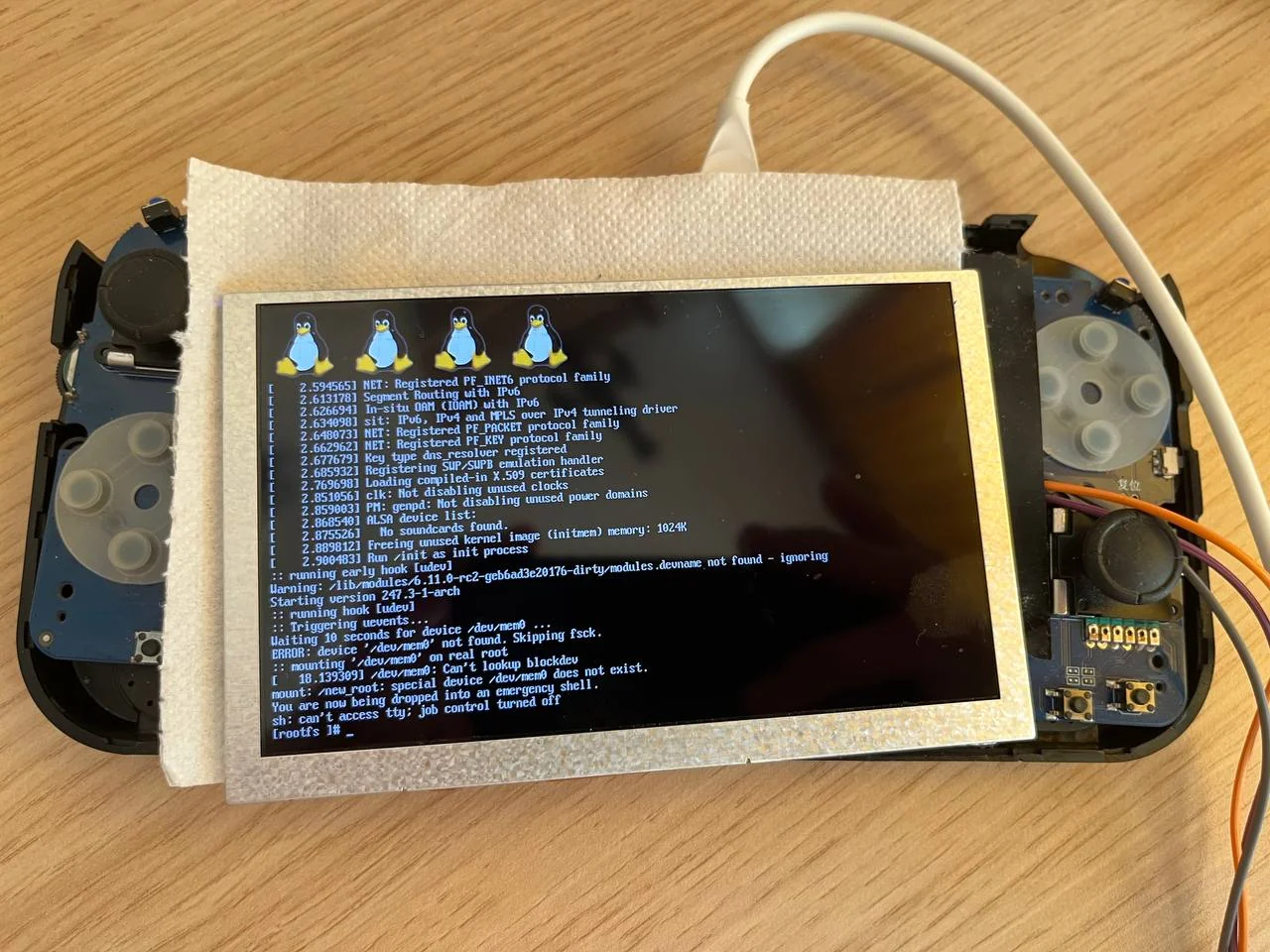
The Samsung Galaxy Xcover 3 VE features the Exynos 3475 (similar to Exynos 7580, which is upstream). One of the key differences is that it’s ARMv7, hence why I have not put much effort into upstreaming my progress - it’s old. However, my mainline fork with support for it has reached a point where graphics acceleration and touchscreen work.
Here’s some pictures and a short video showcasing hardware accelerated phosh.
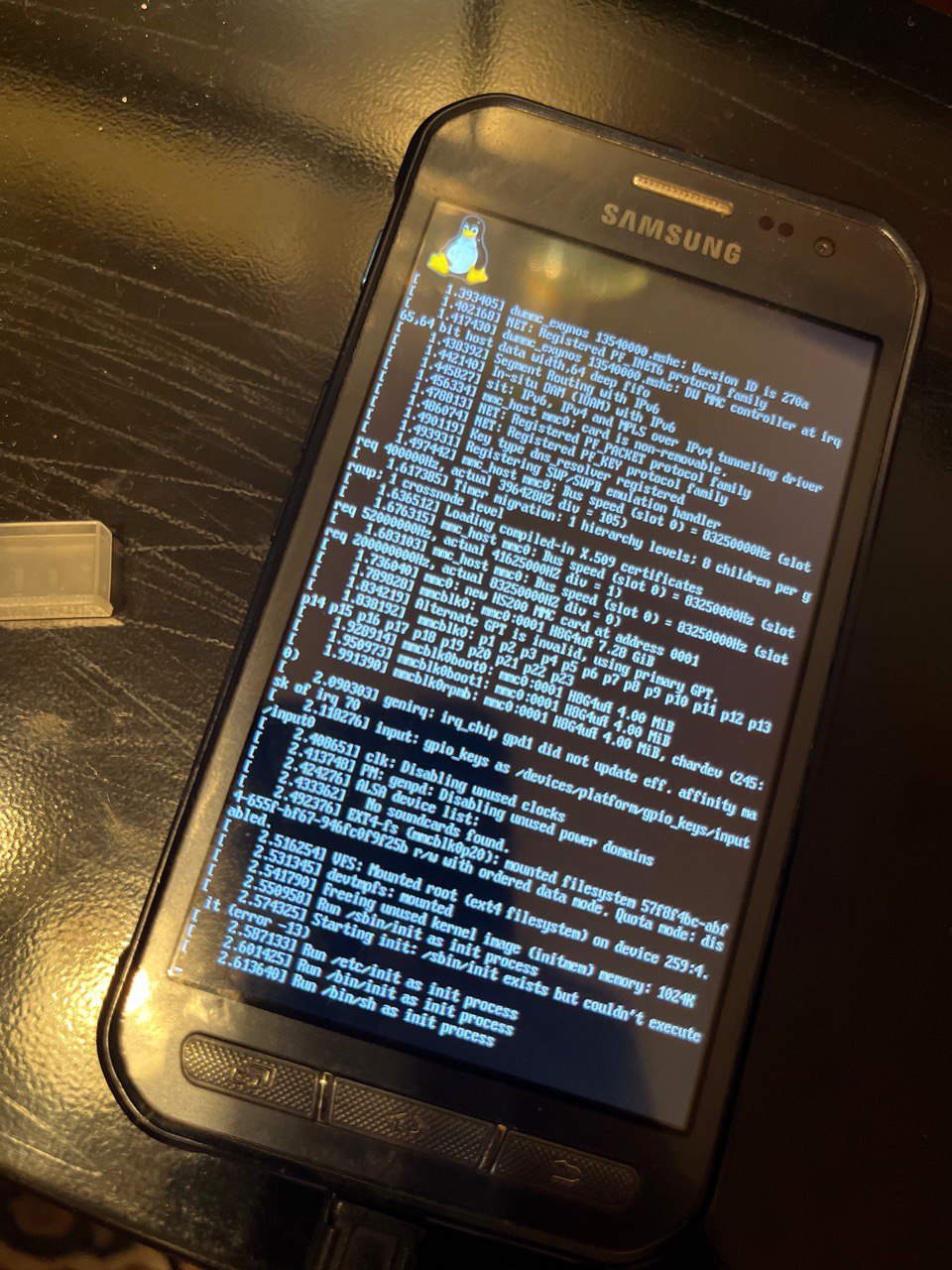
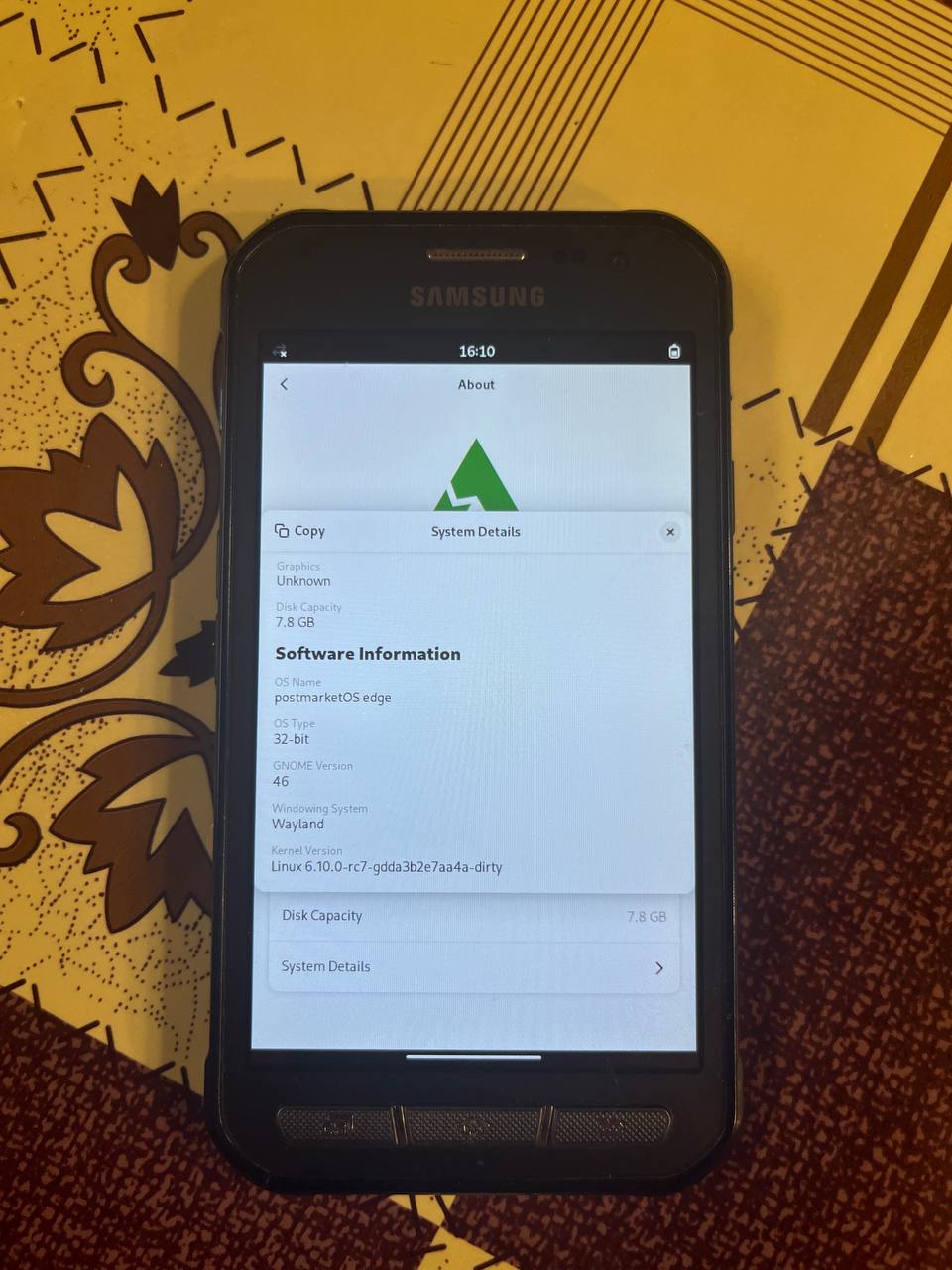
MSM8x12 series SoCs are a cut-off version of MSM8x74. MSM8x12 feature 4 cores and MSM8x10 only 2. The biggest issue currently is that mainline does not have support for MDP3, which means that I’ll have to write a driver for it if we want a working panel driver. Meanwhile the Adreno GPU should be doable with a small amount of changes, simpleDRM and a small hack that allows MESA to use simpleDRM.
All progress for {MSM8x10, MSM8x12} has been done under the Mainline4Lumia project.
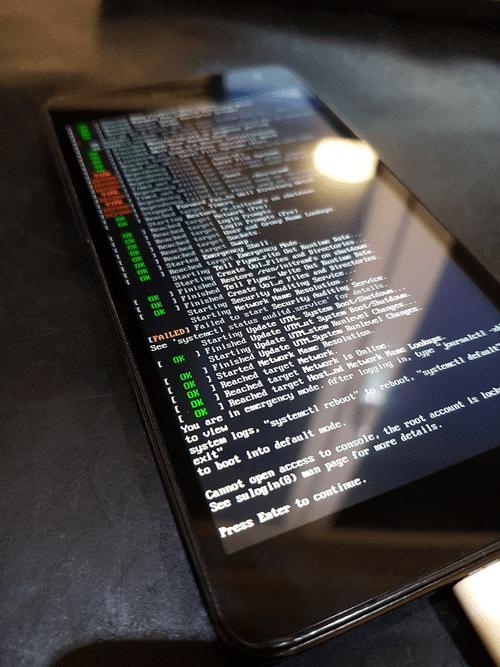
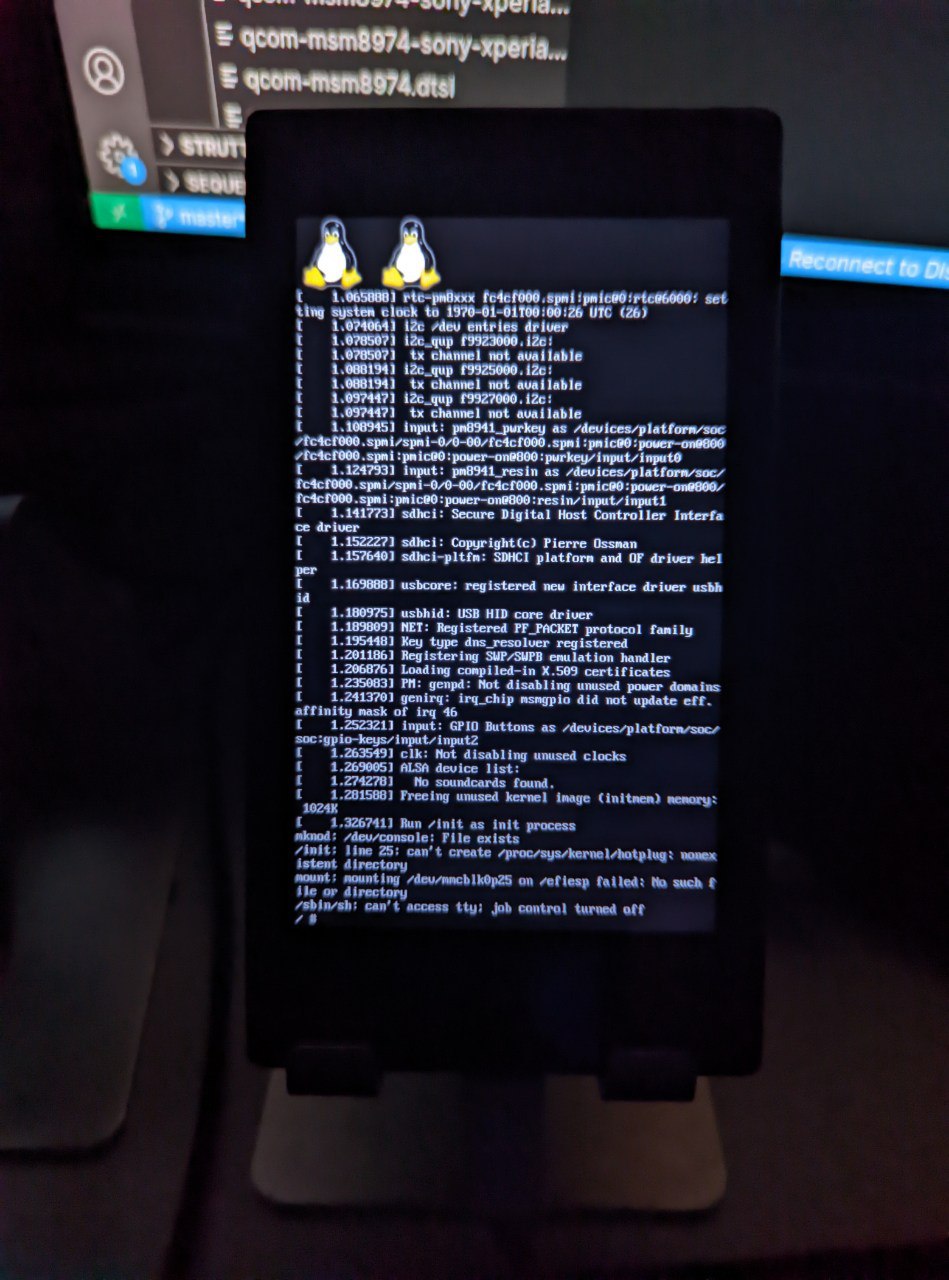
uniLoader #
uniLoader is a secondary bootloader that is capable of booting the upstream Linux kernel for Android and iOS-based devices. It allows embedding the kernel and DTB to it, making it a very minimalistic bootloader that doesn’t require complex hardware drivers for stuff like storage. In fact, even MMU does not get enabled.
I have made it with the purpose to provide a small shim for avoiding vendor bootloader quirks. For example:
- Exynos devices past 2016 leave decon’s framebuffer refreshing disabled right before jumping to kernel, which makes initial debugging efforts when bringing up the platform to upstream linux hard
- Some S-Boot releases have CNTFRQ_EL0 left unset, which causes issues since the linux timer driver cannot read its value and it SErrors. It either has to be set as a hardcoded frequency property in the DT, or passed via libfdt from uniLoader (the latter is cleaner, but still has to be implemented)
There are roughly 20 devices supported so far.
U-Boot #
In order to avoid the stock BL’s limitations, I’ve gotten u-boot working on few devices:
iPhone 5 #
There were many issues. To begin with, S5L8950x either entirely doesn’t have VBAR, or Apple’s implementation of it is broken, so I had to disable it. Then there were a ton of small issues here and there, which I fixed thankfully due to an emulator that I specifically wrote for S5L8950x, called “Legacy Apple Emulator”. Then I had another memory issue, where parsing the framebuffer address via DT was broken, so I had to fix that as well. And finally I brought up USB! - well, partially, since it probably needs some PHY and DWC2 config work. Only USB plug-in detection works for now.
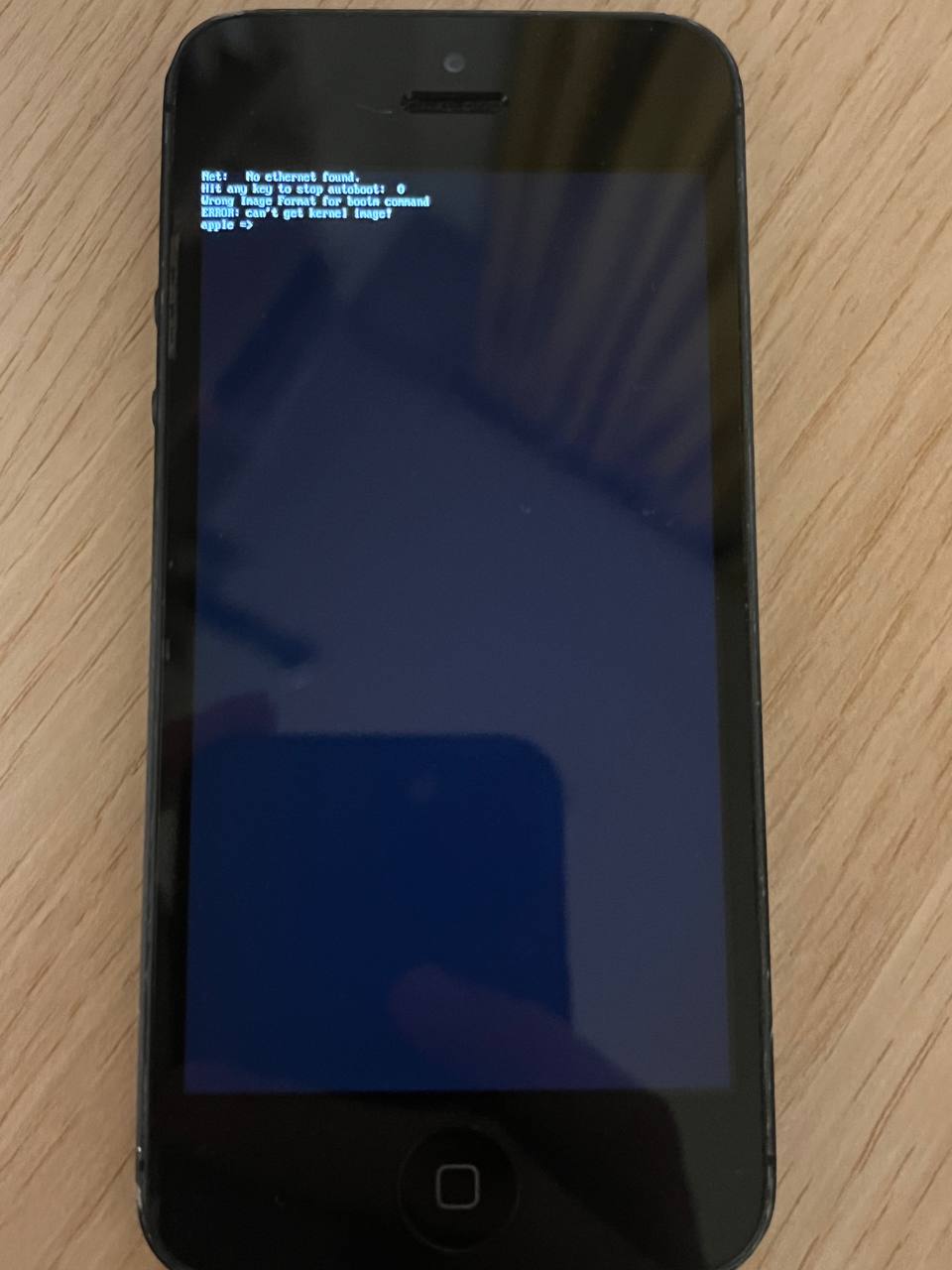
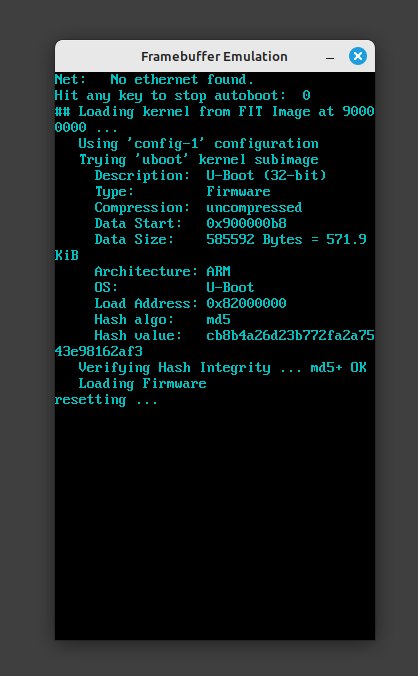
Xcover 3 Value Edition, Powkiddy X51 #
